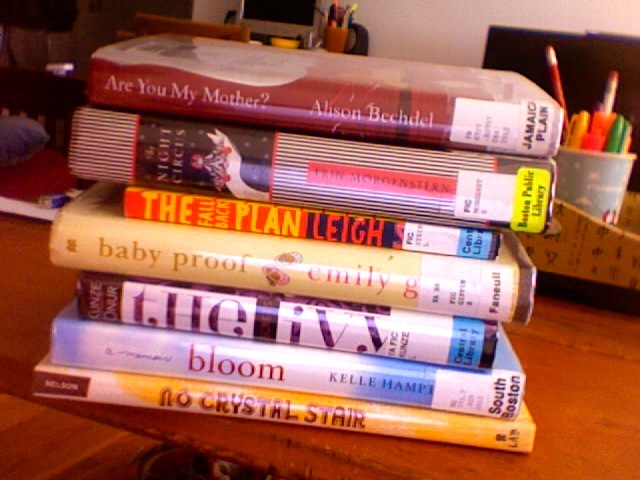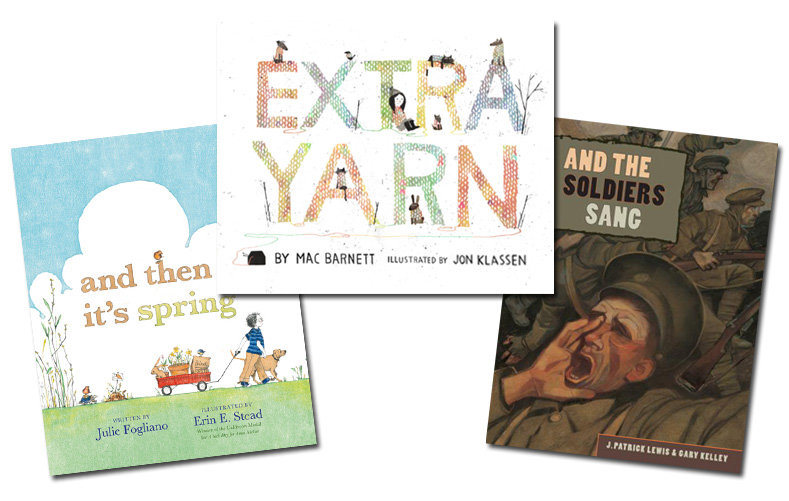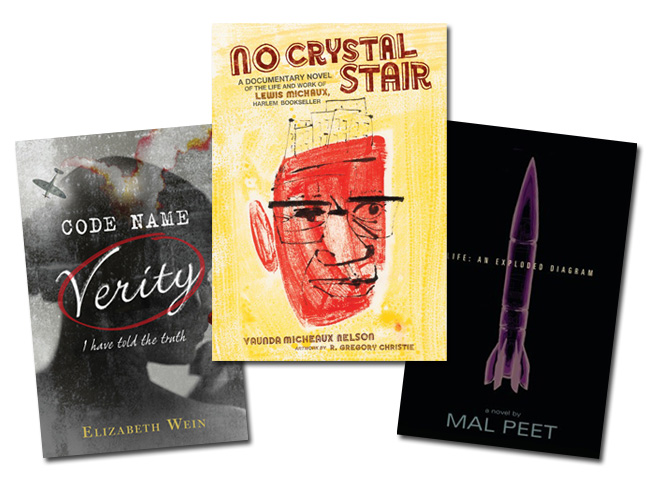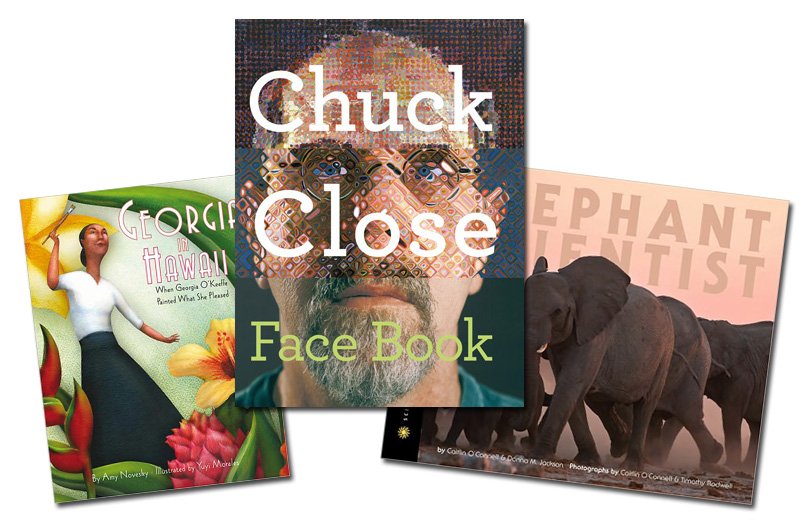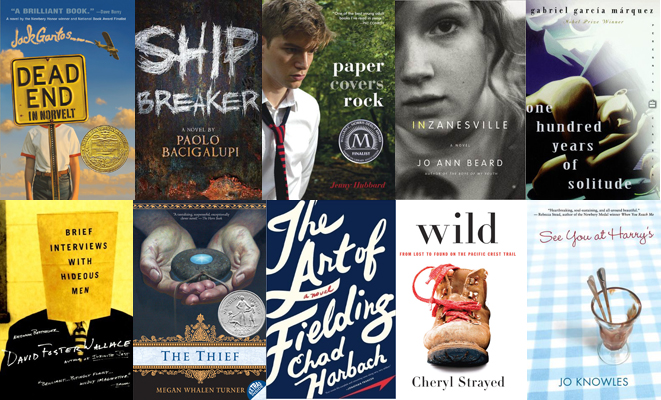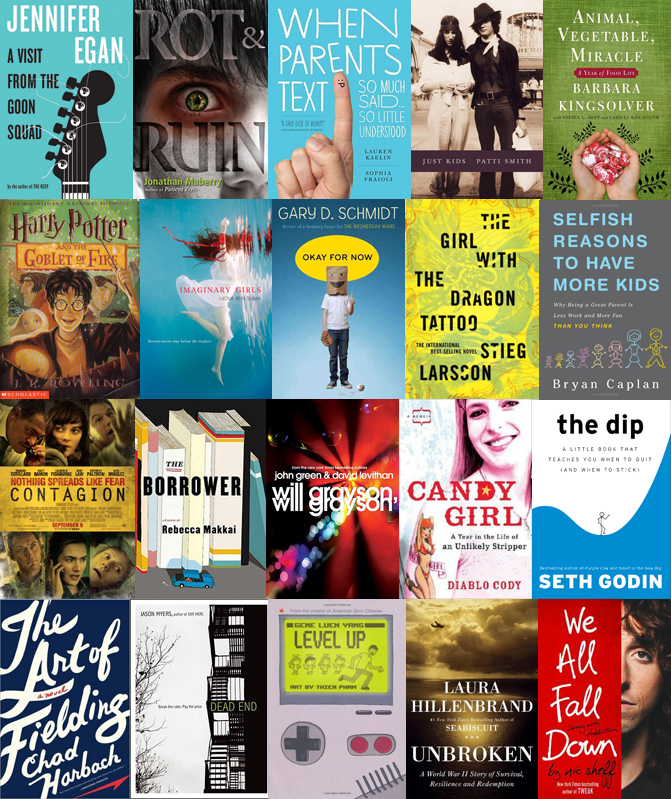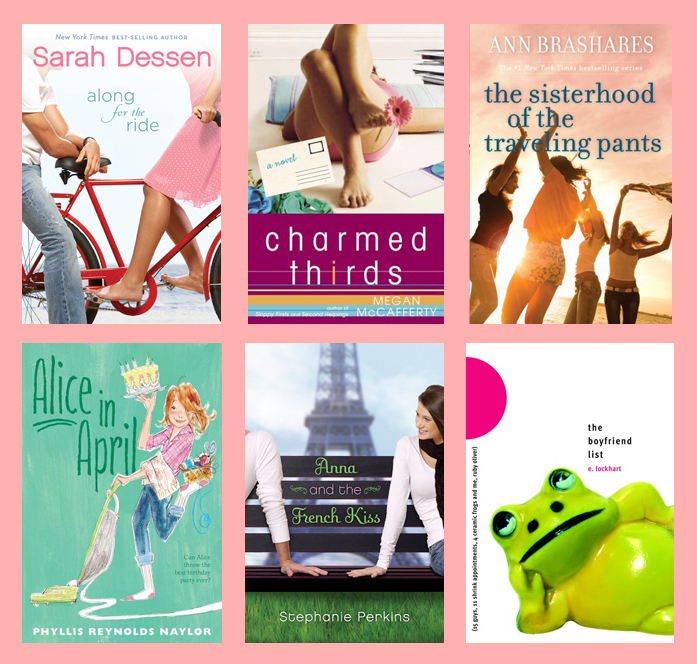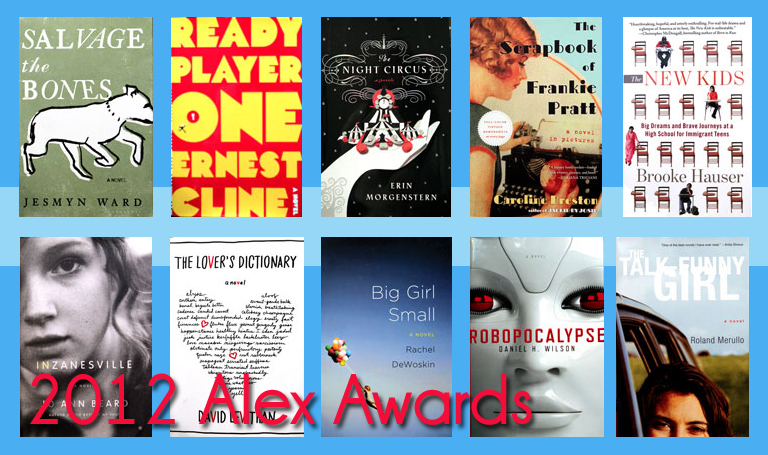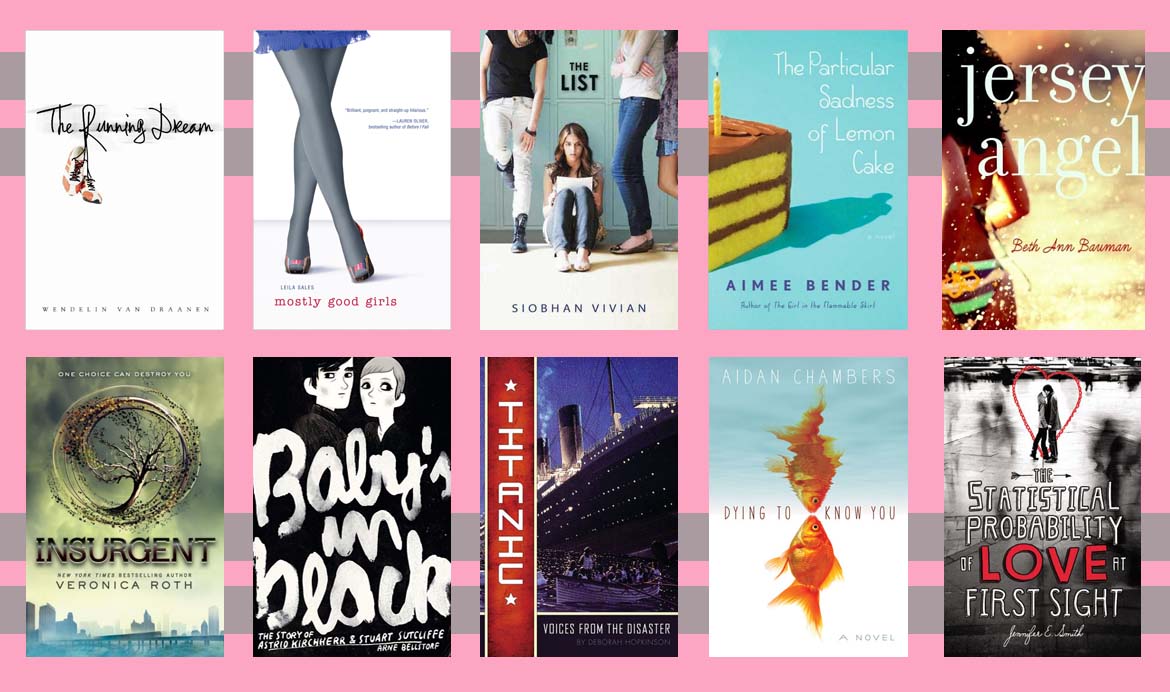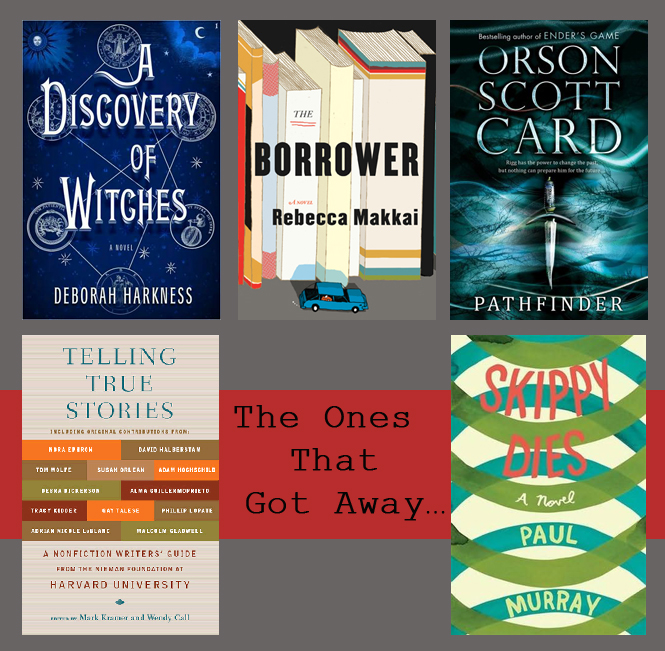While writing my review of Veronica Roth’s Divergent a few weeks ago, I was thinking about how I used to love dystopias, but now I hate them.
I am quick to whine about the post-Hunger Games overload – I am certainly sick to death of reading so many variations on the same theme.
But then I thought about it for awhile and decided that maybe I’m not mad that the world latched onto something I loved and saturated the market… maybe most of the newer dystopias just SUCK.
So if you are new to the genre of dystopian lit for teens, here is a primer, the must-reads. If you haven’t read least three of the following novels, I will not listen to any of your dystopian recommendations. Sorry.
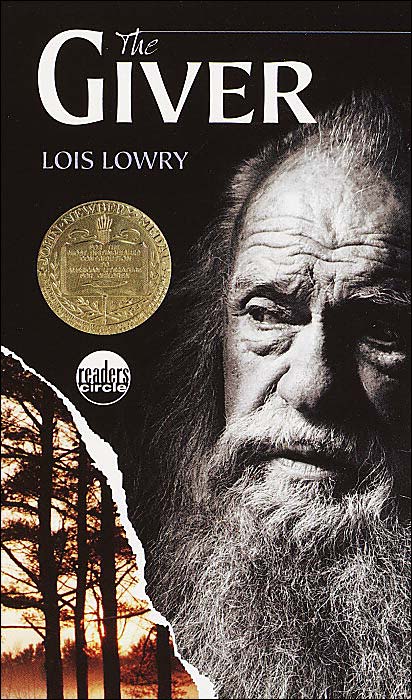
The Giver by Lois Lowry
The Dystopian Conceit? Life is great for a kid. You go to school and eat the meals brought to your door. Your parents care for you, and your siblings too. The elders make all hard decisions so you just don’t have to think about it. When you turn 12, they even choose your career, selected especially for you. Maybe horrible things have happened, are still happening in your Community, but no one needs to know!
The Protagonist is Jonah, a new twelve year old who is in a unique position in the community to begin learning about all that has been denied to him in his life.
My Two Cents: This book is polarizing in the children’s lit world, but I’m pretty sure Lois Did It All First (for kids anyway). And despite having read the book four times in the past three years and written three papers about it… I still like it okay. I mean, no, I do not want to write a fifth paper by any means, but I think it still holds up well.

Feed by M.T. Anderson
The Dystopian Conceit? There’s a computer in your brain – a Feed. You can IM your friends without talking. You can order the hottest new clothes with a single thought. You can upload information instead of doing homework. You can even upload a virus for kicks and giggles. Of course the advertisements don’t stop, and your brain-computer could maybe cause serious medical problems, but we’ll worry about that later.
The Protagonist is Titus, a teen who had a Feed implanted at birth, who falls for a girl whose Feed is no longer functional and is also probably going to kill her.
My Two Cents: I know some people who HATE this book because it’s written in this almost inaccessible, futuristic teen dialect – think “like” + “omg” to the nth power. But once you get past the language (the audio version, helps, I’ve heard) this book is SO genius. This is probably the YA book I have most often recommended to non-YA readers, and they all came back raving. I feel like this book set the bar for the YA dystopia – hardly any others published since have the nuance, the complexity, or the emotional impact that I find in Anderson’s text.
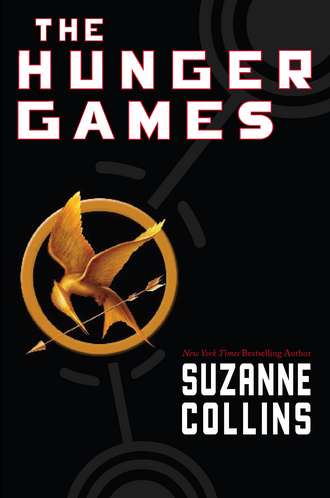
Hunger Games by Suzanne Collin
The Dystopian Conceit? Do I really need to recap this? Are you the one person on the planet who has not read this book?
The Protagonist is Katniss Everdeen, bad-ass scrappy kid who grew up defying authority and has to fight for her life against murderous children while also murdering children. Again, do I really need to recap this??
My Two Cents: I thought I would include this one on my list because it’s probably the most Culturally Relevant YA dystopian, and you’d be remiss not to read it. Although I am not sure how I feel about the series as a whole, the first two books were definitely riveting – Ms. Collins knows how to twist a plot – and there’s something so sinister about the power structures in this book that I just thought I might reiterate what popular culture is telling you: yeah, it’s pretty good.
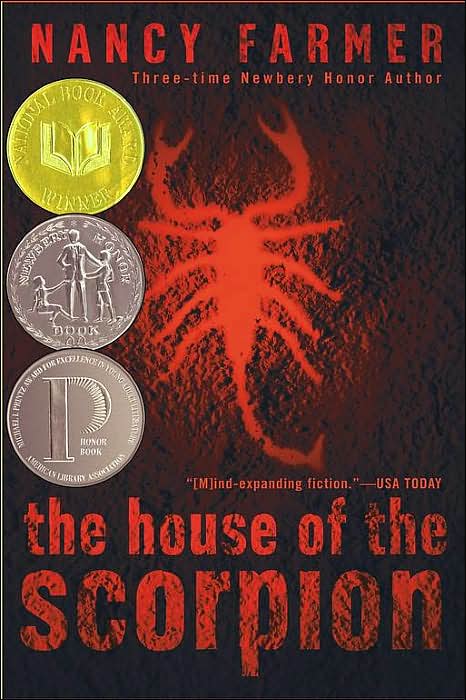
House of the Scorpion by Nancy Farmer
The Dystopian Conceit? Undisclosed political and socioeconomic factors have upset the world’s current organization. Governments have lost their power to large, multinational drug operations, poverty is rampant, and genetic advances have changed the definitions of humanity. Everything is basically turned on its ass, and nasty people have a lot of power.
The Protagonist is Matt, a clone. Because he is the clone of one of the most powerful drug lords, he is immensely powerful, but because clones are not considered human because they cannot possess their own souls, he is also not even human. He grows up in isolalternately praised and ostracized
My Two Cents: House of the Scorpion has so many medals on its cover for a reason: it’s about 10% dystopia and 90% complex, multicultural, literary family drama. Very different than the typical dystopia, which tends to favor action over interpersonal drama. But the beautiful, genius part of the book is that much of the family conflict here derives from the conflict between Past-Western-Society and Future-Western-Society. What values should we hold on to? Which ones should be replaced? Completely riveting and so thought-provoking.
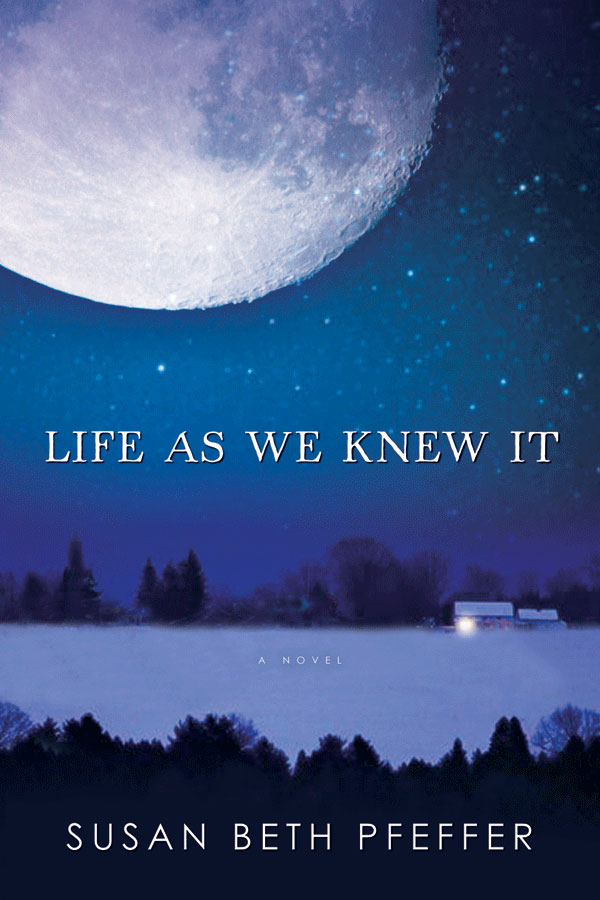
Life As We Knew It by Susan Beth Pfeffer
The Dystopian Conceit? Life is good. Life is fine. Life actually might not be in the future it’s so close to what it is now. Okay, maybe it’s not in the future at all, but when something so simple as the moon is altered, the aftermath is nothing short of apocalyptic. And unlike every other dystopia, there’s nothing nothing NOTHING anyone can do to save the world.
The Protagonist is Miranda, a figure skater who is 100% average. She has no special powers, she’s not The Chosen One. She’s just normal and then everything her life goes completely nuts.
My Two Cents: No, dystopian is not the same as post-disaster. But because many dystopias take place after a society has recovered from some kind of vague, far-gone disaster situation, reading Life as We Knew It feels like it fits into the genre. I love this series. Pfeffer really captures the way that disasters unhinge us in a way that allows for those crazy dystopian situations to actually occur.
A warning: the book is written in diary-style, and the first few chapters are distinctly girly-YA-etc. Just hold on. And hold on tight.
And a bonus!!
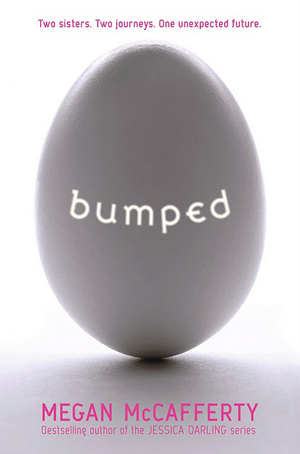
Bumped by Megan McCafferty
The Dystopian Conceit? A mystery virus has sterilized all adults. Perpetuation of the species is now in the hands of teenagers… but adults have commodified and commercialized teen sex & pregnancy to hugely problematic proportions.
The Protagonist is Melody, who is of such excellent genetic stock that she is getting ready to make a big payout when she finally rents out her uterus as a surrogate. Her plans go a little berserk when her separated-at-birth twin, Harmony, shows up when she’s on the run from her secluded religious sect, where people believe that *gasp!* people should have sex for love/marriage and raise their own children.
My Two Cents: This book is too new and a little too silly to enter “the canon” of dystopian YA, in my opinion. HOWEVER, I though I would include it in this list because it somehow both exemplifies a well-drawn dystopian novel while also almost satirizing the dystopian genre…. which makes you think about how all dystopias are kind of not-funny satires of actual life… which makes you wonder why more dystopias can’t be funny. Why can’t more dystopias be funny? Can we work on this, authors at large? Maybe I’ll start investigating those trends and report back in a few years with another definitive, overly opinionated list…
